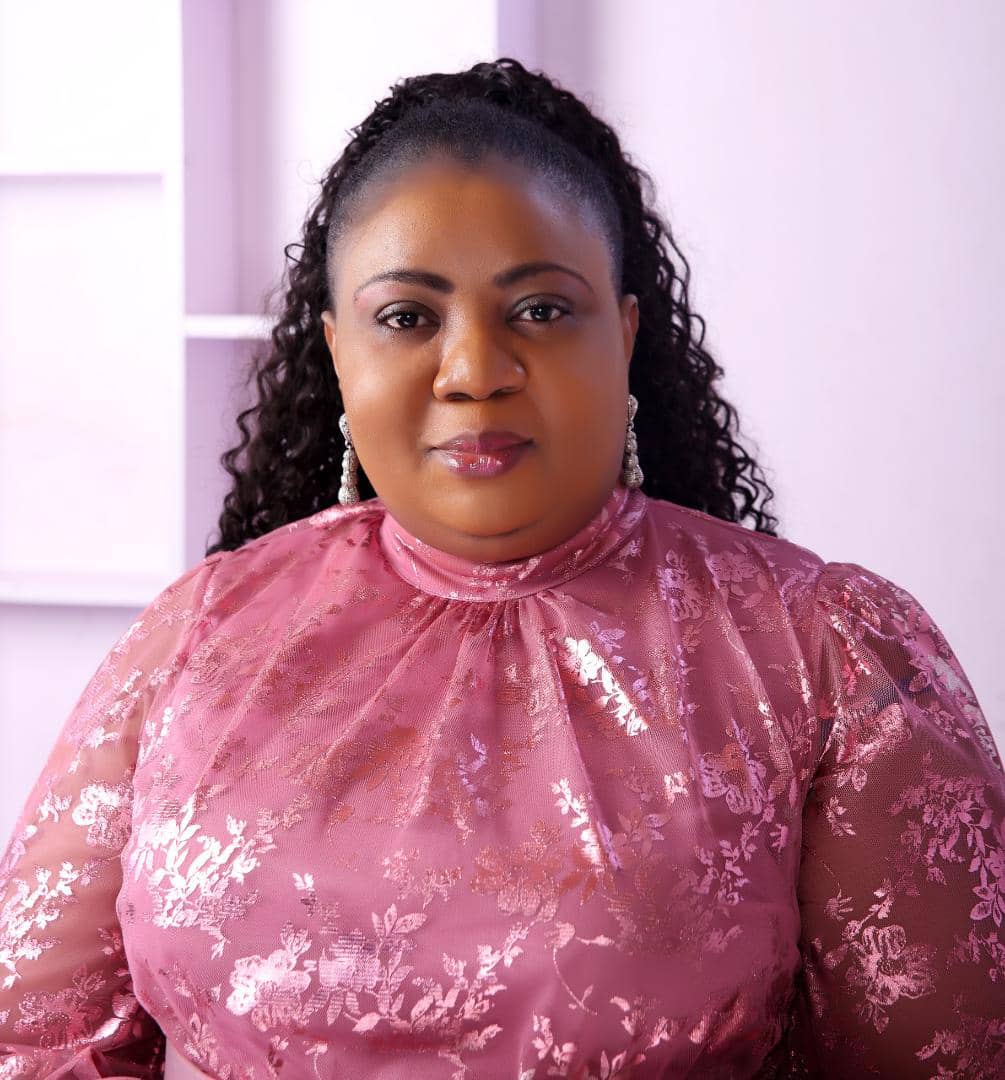Music enthusiast and the Chief Executive Officer of Evergreen Music, Bimbo Esho, tells BABATUNDE TUGBOBO about her career, love for music and other issues

You have a degree in Anthropology. What interested you about the course?
The decision to study anthropology was not mine. I actually wanted to study Medicine, but I found myself studying Anthropology. Coincidentally, it happened to be a course that suits my personality and what I am doing now in terms of research work.
What inspired you to venture into music?
Music is inborn. My dad (Femi Esho) had been a music enthusiast from his youthful days. He had been moving around with the big stars in the industry then such as Victor Olaiya. At home, we grew up listening to music, so naturally, it became a part of me.
Music promotion is perceived to be a man’s business. How were you able to scale that hurdle and make a name for yourself?
If one knows about music promotion, it will be easy for one to know what one is doing. For us at Evergreen Music, we focus more on old school music; sounds of yesteryears. Our promotion is directed towards promoting older artistes, for posterity’s sake.
For someone who has been in the music promotion business for over 20 years and witnessed the evolution from cassettes to compact discs, and now, the Internet era. How have you been able to navigate the constantly changing times?
Music keeps evolving. Even the music genres that we listen to today have evolved from what was obtainable back then; musical instruments have changed too. People naturally gravitate towards things that are easy for them to access and listen to.
Highlife music seems to be your niche. Was that intentional?
Highlife is actually my dad’s first love, like he calls it. Personally, I enjoy different kinds of music. I am trying to promote and preserve our indigenous music such as juju, fuji and apala). Highlife is just one of the things my dad has been irrecoverably interested in. Over the years, he has done so much to promote highlife musicians.
Your father, Femi Esho, is a notable person in the entertainment industry. In what ways did he influence you to follow this career path?
I have always loved music. As a student of Anthropology, I chose to write my thesis on music of yesteryear, especially highlife. Because of my dad’s love for music, it was natural for me to enjoy what he was doing. Over time, I got more interested in what he was doing, and got inquisitive about what it entailed. That is how I found myself here today, still dedicated to preserving music from yesteryear.
How do you juggle music and your fashion business?
In my family, we are all creatively inclined. I am not only into fashion; I manage events as well. I do many things that entail creativity. I can easily be found doing anything that has to do with creativity.
The COVID-19 pandemic affected the entertainment industry badly. How were you able to keep your head above the water throughout that period?
Music keeps a lot of people going. It is not something that can be shut down, either before, during or after COVID-19 or any other pandemic. It is even during such uncertain times that people need music more. For us in the entertainment industry, there is no doubt that COVID-19 had a major effect. It was really terrible because entertainers could not do shows, and that is where the bulk of the money comes from. After the pandemic, practitioners in the industry, including us, have been able to pull through and continue our business. Also, many things are done online these days.
Do you think the industry has regained its bearings after the COVID-19 disruption?
I won’t say it has totally got itself back, just like the whole economy has not bounced back. People now find much easier ways to access and listen to music. Also, many companies that believed their staff had to gather in the office before they could work, have now realised that people can work right from the comfort of their homes.
Considering your love for entertainment and the fact that your dad owns a music company, did you at any point search for a job?
I have always been a self-reliant person. In the secondary school I attended (Mayflower School), the proprietor, Tai Solarin, taught us to always be self-reliant. When I finished school, I started my own business, including printing and fashion. I have never had any reason to look for a job.
What are the factors you consider before organising or promoting a show?
We consider at the concept and the reason for the show. We ask, ‘why do we want to do this show’? ‘What do we want to achieve’?, and ‘who is the target audience’?
We have staged a lot of shows over the years. There was a time we had a programme to celebrate and encourage 45 Ghanaian and Nigerian musicians for their creativity. We also did Ariya Eko, which is geared towards promoting indigenous music and preserving what is truly ours.
Over the years, we promoted different genres of music, ranging from juju to apala, Sakara and many more. We brought in musicians from across different genres to perform. All our events have themes and reasons behind them, and we abide by that.
If you had not ventured into the business, what would you have been doing?
I probably would have become a doctor because I have always loved being a caregiver. I love to see people caring for others. If I was not doing this, that is likely be what I would be doing.
You have promoted quite a number of big names in the industry. What is the experience like working with them?
The older ones have seen it all, so, there is practically nothing new for them. If they trust, respect and appreciate what one is doing, they are easy to work with.
Of all the musicians you have promoted, who gave you the toughest time?
None of them. We are friends and we know how we relate with one another.
You wrote a stirring tribute for Jimi Solanke. How will you assess his contributions to the arts and creative space?
It is not what one can estimate. It is beyond what I can explain, because he is a man of many parts. He is into music, poetry, drama and academics. Thus, the question is, ‘where does one place such a person’? He is an enigma. Even at 80, he still wants to give more.
Do you think a legend like Jimi Solanke has been suitably honoured by the country? If no, what do you think needs to be done?
We don’t honour our people. Until we start getting people in government that have serious interest in our cultural heritage, we are good to go, things will remain the way they are.
These days, it seems more attention is paid to afrobeats music rather than fuji, juju, apala and highlife. How do you feel about that?
The dearth of indigenous record labels is a problem in this area. There are more record labels dedicated to afrobeats, and a lot of money is spent on promoting that particular of music genre. It (afrobeats) has got to the international community and is now accepted globally. They (afrobeats singers) have been able to redefine their music genre, and it has a widespread acceptance, especially among the youth, who form the bulk of society.
On the other hand, it is quite sad that we are losing our ‘authentic’ music. The ‘core’ indigenous music which appeals to the grassroots, seem to be fading off. That is why it seems we don’t even have an identity. That is the way many of us in this segment of the industry feel right now. Afrobeats is not the only music genre we have in Nigeria but unfortunately, it has taken over the whole entertainment landscape.
What stands you out in your craft?
I think it is the fact that I’m one of the first persons that is dedicated towards promoting music of yesteryear. A lot of people seem to appreciate me for that.
How do you unwind?
I listen to live music. I love listening to music in its raw form, not one that has been modified with different sound effects.
Where is your favourite holiday destination?
I really don’t have any. I just like a place where one has privacy, one can sing, and watch wildlife.
How would you describe your personality?
I am an easy-going person. I love doing my things at the right time. Whenever I am out in public; immediately I finish what I came to do, I go back to my shell. I also like moving with cerebral people.
What is your favourite food?
Rice with vegetables.
How do you like to dress?
I am my own stylist. I love simple clothing that is comfortable and makes me happy with myself.


